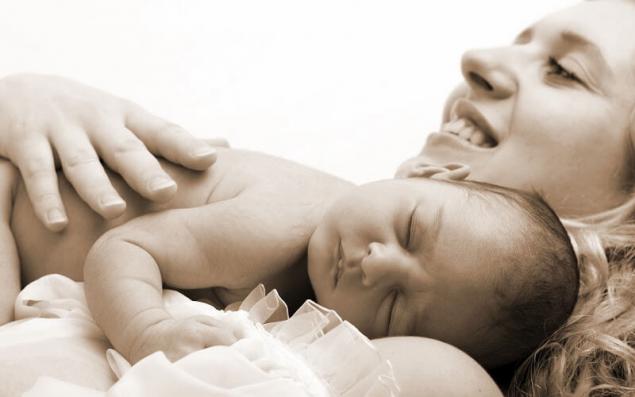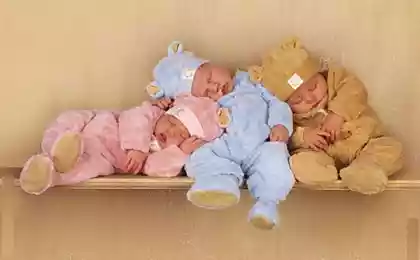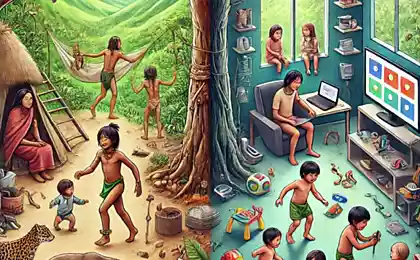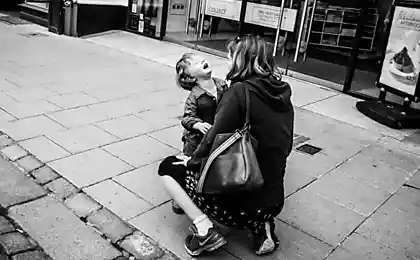380
About the importance of hugs for the baby
The events directly after the birth, make the person more impressive than the rest of your life. What meets the baby determines his attitude to life.
Subsequent experience can only to a greater or lesser extent to Supplement this first impression received by the child when he still knew nothing about this world.
At this point, his expectations are the most immutable of all that he ever will.
The difference between the comfort of the womb and unfamiliar indifferent to the outside world is huge, but man is born ready for a huge step — the transition from the womb into the hands of the mother.

Meanwhile, the child is not willing to commit more than this one step, not to mention the transition from the womb to be lifeless is nothing in the basket, lined with fabric, or in a lifeless plastic box without movement, sound and smell. Established during pregnancy a lasting, unbreakable bond between mother and child is sharply torn. No wonder the mother is depressed, and the baby suffers unbearable torment.
Every fibre of his suddenly naked gentle skin demands the expected embrace, all its being assumes that it will take on hands. Millions of years of the mother immediately after birth are able to once their children. Some children of the last several hundred generations were deprived of this major experience that did not change expectations of newborns to appear on a place belonging to them by right.
Here he writes about the feelings of a newborn child psychoanalyst Wives Radloff in his book "How to raise a happy child":
"The consciousness of the baby differs radically from consciousness of the adult. When the mother leaves him alone, the kid cannot feel that "she'll be right back," and everything in the world becomes unbearably bad. He starts to cry, though for his own crying expresses nothing. He only feels that it we cry can somehow fix the situation. But this feeling disappears, if the child leave to cry too for a long time if behind it we cry does not imply any reaction. Then the baby stops crying – he plunges into hopeless, untimely despair. When it leave, deprive of the correct experience, it is inconsolable, he only feels shortage something important. In this situation, the child can grow, develop and meet their needs in the experience. For the development of the anticipated experience, but nothing in the history of the development of human ancestors had not prepared him for what he'll be separated from his mother, that will leave one, he is awake or asleep, and even more so to leave one to cry." published
P. S. And remember, only by changing their consumption — together we change the world! © Join us at Facebook , Vkontakte, Odnoklassniki
Source: vk.com/id169620900?w=wall169620900_643%2Fall
Subsequent experience can only to a greater or lesser extent to Supplement this first impression received by the child when he still knew nothing about this world.
At this point, his expectations are the most immutable of all that he ever will.
The difference between the comfort of the womb and unfamiliar indifferent to the outside world is huge, but man is born ready for a huge step — the transition from the womb into the hands of the mother.

Meanwhile, the child is not willing to commit more than this one step, not to mention the transition from the womb to be lifeless is nothing in the basket, lined with fabric, or in a lifeless plastic box without movement, sound and smell. Established during pregnancy a lasting, unbreakable bond between mother and child is sharply torn. No wonder the mother is depressed, and the baby suffers unbearable torment.
Every fibre of his suddenly naked gentle skin demands the expected embrace, all its being assumes that it will take on hands. Millions of years of the mother immediately after birth are able to once their children. Some children of the last several hundred generations were deprived of this major experience that did not change expectations of newborns to appear on a place belonging to them by right.
Here he writes about the feelings of a newborn child psychoanalyst Wives Radloff in his book "How to raise a happy child":
"The consciousness of the baby differs radically from consciousness of the adult. When the mother leaves him alone, the kid cannot feel that "she'll be right back," and everything in the world becomes unbearably bad. He starts to cry, though for his own crying expresses nothing. He only feels that it we cry can somehow fix the situation. But this feeling disappears, if the child leave to cry too for a long time if behind it we cry does not imply any reaction. Then the baby stops crying – he plunges into hopeless, untimely despair. When it leave, deprive of the correct experience, it is inconsolable, he only feels shortage something important. In this situation, the child can grow, develop and meet their needs in the experience. For the development of the anticipated experience, but nothing in the history of the development of human ancestors had not prepared him for what he'll be separated from his mother, that will leave one, he is awake or asleep, and even more so to leave one to cry." published
P. S. And remember, only by changing their consumption — together we change the world! © Join us at Facebook , Vkontakte, Odnoklassniki
Source: vk.com/id169620900?w=wall169620900_643%2Fall
Sorting and recycling facilities in Japan
Ford has patented the design of the car with detachable rear wheel-unicycle
























